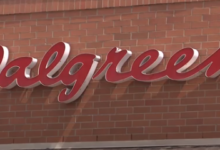“Portland’s Evolution: The Arrival of Soho House and the Debate Over Identity”

In a distinctive enclave of Portland, Oregon, stands a dive bar where a vending machine dispenses tarot cards, and a dessert joint boasts a white-water kayak in its bathroom. Just a stone’s throw away, a dozen goats once roamed freely for vaguely environmental reasons, lending a touch of eccentricity to the neighborhood.
READ: OAS to Step in as Mediator in Guatemala’s Power Transition Crisis
Portland
However, the goats have since departed, making way for an apartment complex housing a Chipotle. Such developments are becoming commonplace in Portland, a city accustomed to transformation. Yet, the latest addition caught many off guard: a Soho House.
This London-based chain of exclusive members’ clubs, renowned as a posh retreat for jet-setters and celebrities, is set to unveil a new outpost in Portland’s rapidly gentrifying Central Eastside. The arrival of Soho House brings with it a rooftop pool, a two-story gym, and a restaurant serving delicacies like steelhead tartare, all housed in a refurbished industrial building that once served as a hub for the city’s burgeoning artist community.
Membership to the Portland club comes at a price—$1,950 annually for access to its amenities, with an additional $4,500 yearly fee granting entry to Soho House locations in London, New York, Paris, and Los Angeles.
Portland’s hipster stereotype, though never an accurate portrayal, is evolving with the city’s changing landscape. A growing population of affluent professionals, employed by corporations like Nike or creative agencies like Wieden+Kennedy, now call Portland home. They reside in luxury apartments in the Pearl District and frequent upscale establishments like the 20th-floor bar at the new Ritz-Carlton downtown. Soho House, amidst whispers of financial instability, seems to be banking on attracting this demographic.
However, the juxtaposition of Soho House’s exclusive aura with Portland’s reputation for quirky individualism has sparked debate among locals regarding the city’s evolving identity.
For some, Soho House’s arrival signifies a victory for Portland, especially in the wake of pandemic-related closures and civil unrest. Yet, others view the club as a mismatch with the city’s delightfully unconventional spirit, and question its compatibility with a neighborhood grappling with homelessness and addiction issues.
Connor Bowlan, a 34-year-old Portland native and founder of a nonprofit arts and entrepreneurship center, expressed his surprise at the news, deeming it an “odd move” and noting its departure from the city’s cultural ethos.
Indeed, Soho House’s presence in Portland serves as a litmus test for residents’ perceptions of their city’s transformation. While some embrace the club’s elite allure, others question its resonance with Portland’s distinctive character and ongoing socio-economic challenges.






